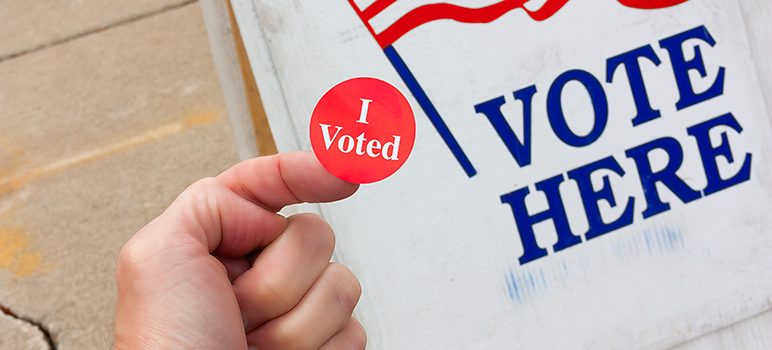A Bloomberg op-ed begins: “For the second time in a row, polling has failed to correctly assess the mood of the nation heading into a U.S. presidential election.”
What if you could assess the mood of the nation without polling anyone and forecast the election more accurately than the pollsters?
Here’s how we do exactly that at the Socionomics Institute.
Socionomic theory starts from the premise that our mood influences our behavior. At the societal level, that means social mood regulates the tenor and character of social actions. One of our best indicators of social mood is the stock market, as traders can bid stock prices higher and lower nearly instantly in response to changes in mood.
We use stock market indexes such as the Dow Jones Industrial Average as leading social mood indicators to forecast trends across society, including trends related to epidemic disease, unrest, pop culture, business, the economy, and yes, elections.
In 2012, we conducted one of the most comprehensive studies of stock market performance and presidential reelections in history. We studied every presidential reelection bid going back to George Washington’s run for a second term in 1792 and found that the three-year net percentage change in the stock market had been a better reelection indicator than GDP, inflation and unemployment—either separately or combined. We think that’s because the stock market is a better indicator of social mood.
Based on that analysis, we predicted a win for the incumbent, Barack Obama.
We revisited that work this year and observed that 87 percent of incumbent presidents had been reelected after the stock market registered an overall net gain of at least 20 percent in the three years leading up to the election. In this election, a 20 percent three-year net gain corresponded to a level in the Dow Jones Industrial Average of 28,052.
We next found that when the market recorded an overall net gain less than 20 percent, incumbents were reelected far less frequently. Of the nine incumbents who sought another term under such conditions, five won while four lost. We noted that while more incumbents had won than lost, that’s as close to a statistical coin flip as you can get.
Because 18th and 19th century stock market data are available only monthly, we standardized our measures in our 2012 study to month-end October. Last Friday, the final trading day of October 2020, we issued an update to subscribers under the headline, “Stock Market History Says the Race Has Entered Coin Flip Territory.”
Our message was simple.
The Dow’s three-year net gain was 13.4 percent, a positive net change less than 20 percent and thus squarely in the range where the incumbent win-loss record was evenly divided. We also issued a press release to that effect, which ran in several news outlets.
At the time, calling the election a “toss-up” seemed like it wasn’t much of an outlook at all. But it differed mightily from the polls, which right up until the day of the election had consistently predicted a sweeping win for the challenger.
When we awoke on Nov. 4, the outcome was still a toss-up. The polls that projected Biden to win in a landslide had missed the mark.
Election results are only the tip of the iceberg when it comes to political developments you can understand and anticipate with socionomics. Do you want to know when to run for office? And on what message?
Socionomics can also help us tell which policies and movements are likely to gain political traction, when to push for peace or gird for war, how to anticipate the next trend in financial regulation, when to prepare for an outbreak of scandals, or how to diagnose when successful corporations are likely to find themselves under greater government scrutiny? Follow the social mood trend in the stock market, and you will be on your way to seeing around the corner better than just about anyone else.
Matt Lampert is the director of the Socionomics Institute and a contributing author to the book Socionomic Causality in Politics, an Amazon #1 bestseller in behavioral psychology. Opinions are the author’s own and do not necessarily reflect those of San Jose Inside. Send op-ed pitches to
co******@me*******.com
" target="_blank" rel="noopener noreferrer">
co******@me*******.com
.

